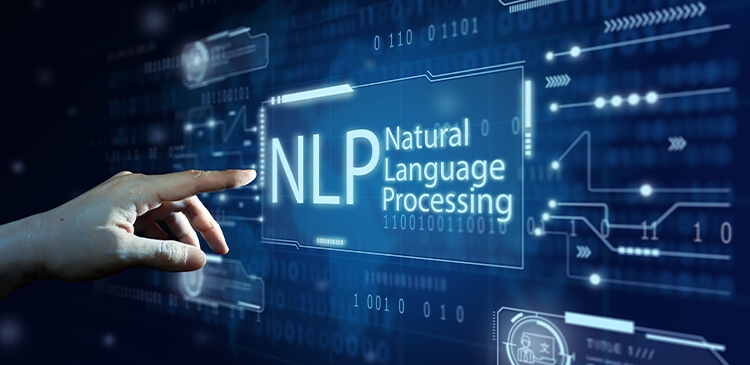
ROLE OF MACHINE LEARNING & NATURAL LANGUAGE PROCESSING FOR SEO FUTURE
Search Engine Optimization is the process businesses use to optimize their website’s technical configuration, content relevance & link popularity, so that they are easily findable, more relevant & popular towards user search queries, leading to better search engine rankings. Businesses invest in a seasoned Digital marketing agency to scale up their website rankings and improve their visibility among competitors & earning a credible image for the customers.
WHAT DOES MACHINE LEARNING MEAN FOR SEO RANKINGS?
Machine learning is not new & as the technology continues to evolve, it become imperative to think of its dynamic impact on technical SEO, content, link building & links. Latest Google updates are eyeing at giving SEO more freedom to focus on the user rather than the bots. Sooner, passage-based indexing would be introduced by Google. This technology allows it to recognize individual passages on a particular page to be processed as highly relevant for a certain query. This change is expected to affect around 7% of search queries across every language.
ROLE OF NLP (NATURAL LANGUAGE PROCESSING) IN SEO?
From time to time, a change in algorithm happens & if you’re lucky to be the first one to see it & adapt your SEO, you reap massive rewards while everyone else is playing catchup. NLP is a very useful tool to compare topics that you covered in your content to your competitor’s content. Search engines never buy anything from you, whereas users will. So, give the users what they want.
While exploring clever digital marketing services, application of machine learning & NLP to SEO would definitely leave a lasting impact on your business progression. Talking about Google, it’s the users’ experience that keeps the lights on. Search quality is what Google focuses on. Sometimes, the algorithm doesn’t have enough historical data to anticipate the intent behind the search term, so it gets difficult to understand what the user is looking for. The key is to understand the language better. NLP is Google’s way of doing that.
CONTENT IS MORE THAN THE KING; IT’S THE KINGDOM
As quoted by Pandu Nayak, Google.Inc, “With the latest advancements from our research team in the science of Language understanding – made possible by machine learning – we’re making significant improvements at how we understand queries, representing the biggest leap forward in the past five years & one of the most significant leaps forward in the history of search.” That sums it up for us to understand the pivotal role of machine learning and NLP in SEO rankings.
Did anyone think of sentiments in understanding the content? Google did. Many sentences have ‘stop words’ that have multiple meaning like- to, in, get-go, etc. these words have many purposes that it makes it difficult for Google to understand the context, even with machine learning advancing as quickly as it is. By sentiment, it simply refers to the undertone or feeling represented in the content- positive, negative, neutral or scalable.
WHY SENTIMENT IS IMPORTANT FOR SEO?
Simply, if the results on page 1 are offering positive sentiment & your page is mostly classified as having negative sentiment, there is a strong chance Google will not consider your page relevant to what the user is looking for.
ROLE OF MACHINE LEARNING & NLP FOR FUTURE OF SEOs
Machine learning & Natural Language Processing dramatically improves the user experience. Renowned SEO agencies in Gurgaon focus on deploying these tactics to maximize ROI and achieving business goals in estimated time. The technology that powers passage indexation lets Google identify pages with a matchable section query. There is deeper focus on the audience instead of search crawlers that might be beneficial from the content and ranking perspective. Search engines prefer topical authority & content which restricted many SEOs into a mindset that search bots & users should be prioritized equally while writing content.
It’s imperative to make your website Googlebot-friendly for the sake of technical SEO. Experts don’t agree with completely abandoning keyword research, instead adapting it to intent research. A variety of keywords can be used to express the same intent. Customer rallied as the king, Google’s goal is to arm its users with the information that they wish to acquire. Google expects passage indexation to affect only 7% of search queries, so keyword research should remain a vital part of SEO for the foreseeable future.
